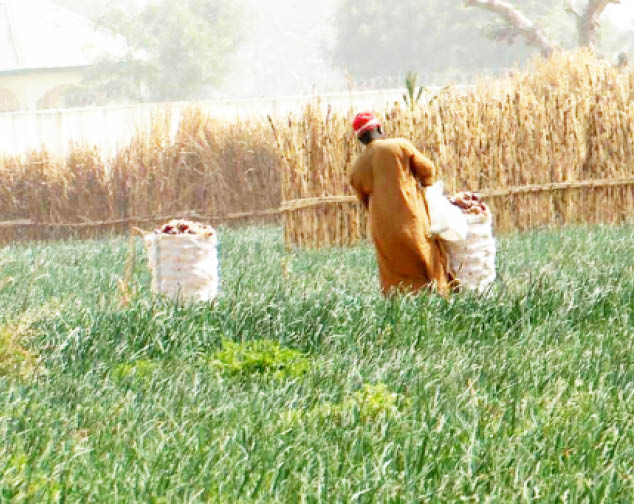How to identify scammers in livestock industry – Farmer
Farmers are increasingly facing serious challenges dealing with fraudulent people seeking to take advantage of them. In the agricultural sector, there are pockets of organised fraud, swindling farmers of their hard-earned income. Some of the organised schemes include fraudulent investment schemes, fake bank alert system (targeting farmers who are vulnerable, and many online sales of […]

A vegetable farmer
Farmers are increasingly facing serious challenges dealing with fraudulent people seeking to take advantage of them.
In the agricultural sector, there are pockets of organised fraud, swindling farmers of their hard-earned income.
Some of the organised schemes include fraudulent investment schemes, fake bank alert system (targeting farmers who are vulnerable, and many online sales of livestock and others.
Dr John Abraham Godson, a livestock farmer and owner of Pilgrim Ranch, has highlighted a number of ways farmers can identify scammers in the livestock sector.
- Supplementary Polls: Fintiri Maintains Lead As INEC Concludes Collation Today
- Post-election crises fester in APC, PDP, LP, NNPP
He listed fives ways to assess if someone is trying to scam you as a livestock farmer:
“If someone is offering a price that is too cheap to be true – then it’s most likely a scam.
“Secondly ask for a live video call. If they refuse – then they are most definitely scammers.”
Dr Abraham, who is the President, Boer & Kalahari Red Goat Breeders Association of Nigeria, advised farmers being approached to “ask for a live video call to see the farm and the livestock. Scammers will not accept this because they don’t have them.”
Four, he opined that “If you want to play along – find out their bank account details for payment. If it differs from the given name of the farm—that should be a warning sign. With the bank account you can identify the real person behind the fraud.”
Lastly, he said where a farmer still has any doubts, he or she should request for a farm visit, adding that “go or send someone to verify the authenticity of the farm.”
